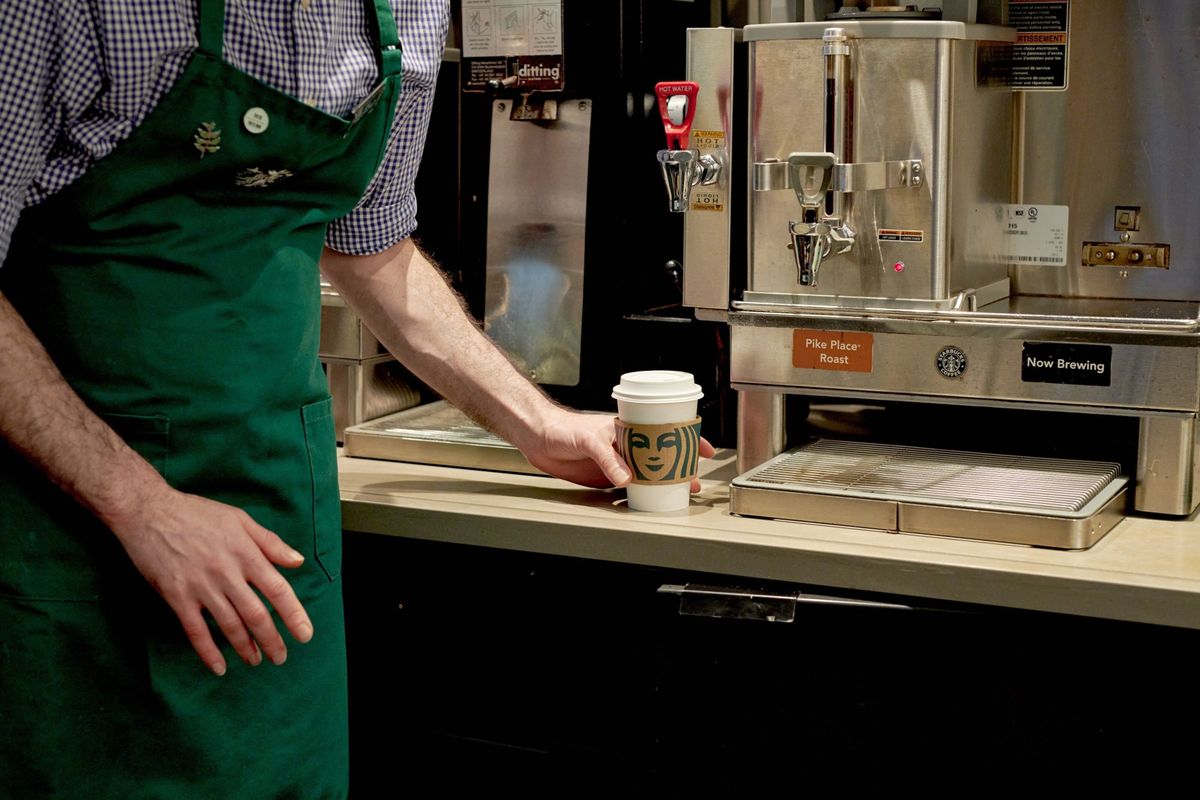Starbucks baristas strike in three cities during holiday rush

Starbucks baristas began a five-day strike Friday, after accusing the coffee giant of stalling union contract negotiations.
Starbucks Workers United said the work stoppage launched Friday morning at union stores in Los Angeles, Chicago and Seattle, three major markets.
The strikes, over pay and other benefits, are expected to expand each subsequent day through Christmas Eve, reaching hundreds of locations from coast to coast, unless Starbucks provides the union with a stronger contract offer.
The union did not say how many stores or workers went on strike in Chicago, Los Angeles and Seattle on Friday.
“Starbucks has broken its promise to thousands of baristas and left us with no choice,” Fatemeh Alhadjaboodi, a Starbucks barista from Texas who is on the bargaining team, said in a statement. “In a year when Starbucks invested so many millions in top executive talent, it has failed to present the baristas who make its company run with a viable economic proposal.”
Jay Go-Guasch, a Starbucks spokesperson, said in a statement that union “delegates prematurely ended our bargaining session this week,” calling it “disappointing they didn’t return to the table given the progress we’ve made to date.”
The month of December, especially the days leading up to Christmas, is one of the busiest times of year for the coffee giant.
Starbucks Workers United said baristas decided to strike after the company offered them no immediate raises and a guarantee of 1.5 percent in subsequent years.
The company said the union had called for an immediate 64 percent increase in the minimum wage for hourly baristas, calling the proposal “not sustainable.”
The walkouts also coincide with strikes against Amazon that began Thursday and are expected to escalate in coming days, threatening package delivery in some big markets ahead of the holidays.
More than 11,000 Starbucks baristas at 535 stores in 45 states and the District of Columbia have unionized since late 2021 - despite facing fierce early opposition from the company. But last year, Starbucks adopted a new strategy, agreeing with the union to a framework that would help the company reach a contract with the union and resolve litigation between the parties.
The company said that it has invested more than $3 billion in its workforce over the past three years and that it offers average pay of more than $18 an hour, plus “best-in-class benefits,” including health care, free college tuition and paid family leave for employees who work at least 20 hours a week.
“No other retailer offers this kind of comprehensive pay and benefits package,” Go-Guasch said.
The company also recently offered all of its front-line employees - including union members - a 2 to 3 percent pay increase, according to a Bloomberg News report.
On Tuesday, 98 percent of union baristas voted in favor of authorizing a work stoppage, according to Starbucks Workers United. The number of affected stores make up a very small percentage of all U.S. Starbucks.
The union said that the company has not offered a “comprehensive economic package” and that hundreds of unfair labor practice charges at the National Labor Relations Board have not been resolved.
The coordinated strike marks the first against Starbucks since February, when the company agreed to resume bargaining with the goal of reaching a first contract with its union workers.
“Right now, I’m making $16.50 an hour,” Silvia Baldwin, a Starbucks barista in Philadelphia who is also on the union’s bargaining team, said in a statement. “The company just announced I’m only getting a 2.5% raise next year, $0.40 an hour, which is hardly anything. It’s one Starbucks drink per week. Starbucks needs to invest in the baristas who make Starbucks run.”